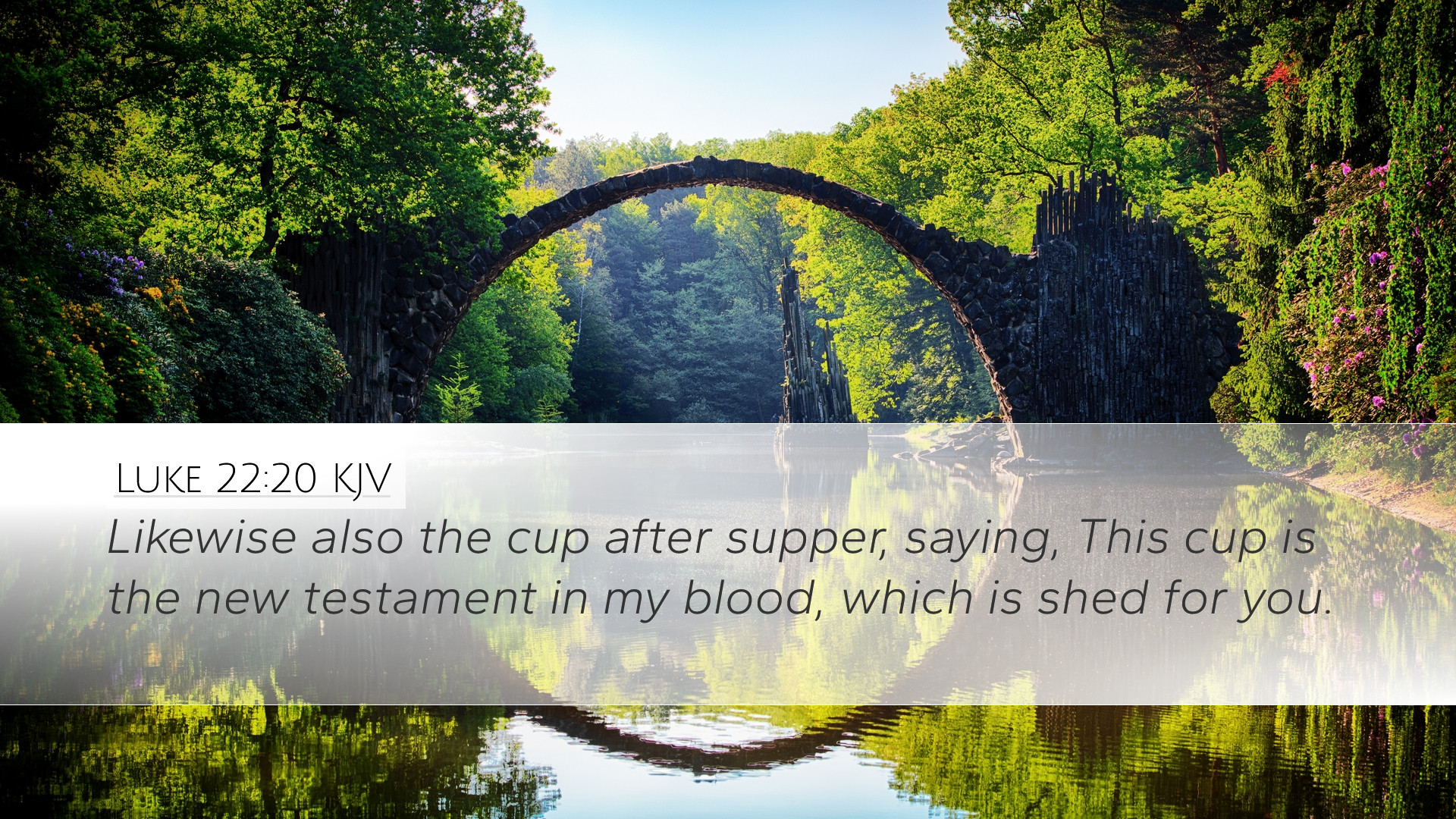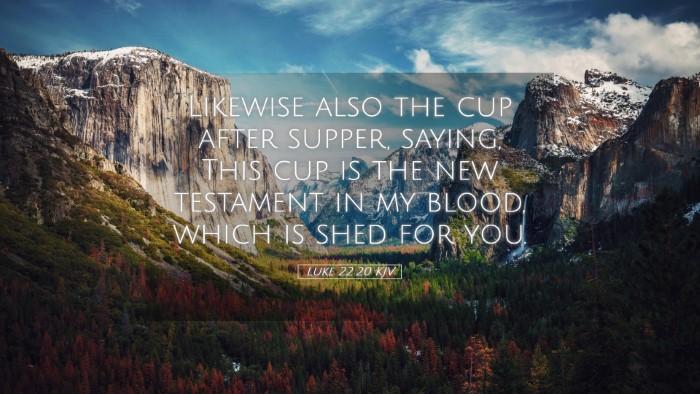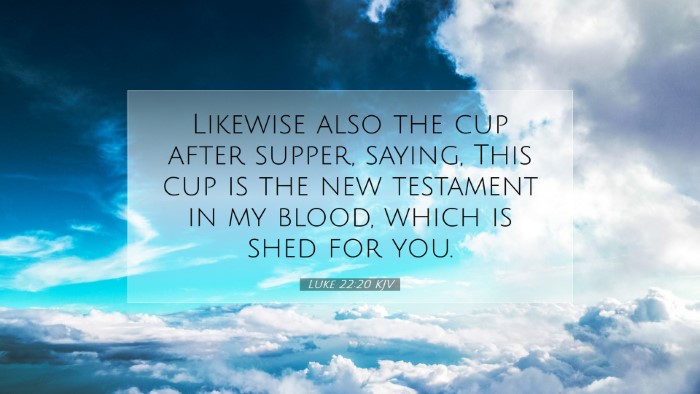Commentary on Luke 22:20
Luke 22:20 states, "Likewise also the cup after supper, saying, This cup is the new testament in my blood, which is shed for you." This passage is pivotal in understanding the nature of the New Covenant established through Christ's sacrifice. Below, we present a summary of insights from renowned public domain commentaries.
Contextual Significance
The Last Supper, wherein this verse is set, embodies a moment of transition from the Old to the New Covenant. Jesus' words here highlight the institution of the Eucharist, symbolizing His impending sacrifice and the establishment of a new relationship between God and mankind.
Matthew Henry’s Perspective
Matthew Henry emphasizes the importance of the Lord's Supper as a direct communion with Christ. He notes that the cup represents the blood of Christ, which signifies the New Testament or covenant. According to Henry:
- Jesus identifies the cup as part of the New Covenant, drawing a parallel to the ancient Jewish Passover, signifying deliverance and redemption.
- The shedding of blood is essential to the covenant, underscoring the sacrificial system that was fulfilled in Jesus.
- Henry insists that this cup represents both a moment of sorrow as Jesus anticipates His suffering and a moment of joy for believers who partake in the benefits of His sacrifice.
Albert Barnes’ Insight
Albert Barnes elaborates on the theological implications of the phrase “new testament in my blood.” He remarks:
- “New testament” indicates a fresh, transformative relationship where the previous covenant is fulfilled and replaced by the sacrifice of Christ.
- Barnes explains the richness of the term "blood," which not only symbolizes sacrifice but also signifies life given for redemption.
- He highlights the prophesied nature of this event, referencing Jeremiah 31:31-34, which foretells a new covenant with God’s people.
Adam Clarke’s Commentary
Adam Clarke provides an elaborate cultural and historical context regarding the Last Supper. He notes that:
- The cup symbolizes the culmination of God’s redemptive plan, as articulated in both the Judaic tradition and the teachings of Jesus.
- Clarke addresses the implications of Jesus’ statement, indicating that this new covenant would not only be between Jesus and His immediate disciples but for all subsequent believers.
- He reinforces the notion of faith and participation in Christ’s blood as central to the believer’s experience in the New Covenant.
Theological Implications
This verse encapsulates several theological themes crucial for pastoral teaching and theological reflection:
- Redemption: The emphasis on Christ's blood signifies the ultimate sacrifice for sin, marking the fulfillment of Old Testament sacrificial laws.
- Covenant Theology: The concept of a New Covenant highlights God's ongoing relationship with humanity, now established through faith in Christ.
- Communal Participation: The shared cup underscores the communal nature of Christian faith as believers partake in the tangible recognition of Christ’s sacrifice.
Application for Believers
Reflecting on Luke 22:20, believers are called to:
- Recognize the gravity of Christ’s sacrifice and its significance in their personal faith journey.
- Engage in communal worship and the practice of the Lord’s Supper with a deep understanding of its implications for unity within the church.
- Live in the light of the New Covenant, embodying the grace and truth offered through Jesus Christ in daily life.
Conclusion
Luke 22:20 serves as a theological cornerstone that illustrates Christ’s fulfillment of the Old Covenant through His sacrificial death. The insights from Matthew Henry, Albert Barnes, and Adam Clarke provide a robust framework for understanding the significance of this verse for both personal faith and communal worship. Through a thoughtful engagement with this verse, pastors, students, and theologians can glean profound insights into the nature of salvation, covenant, and the Christian community.


